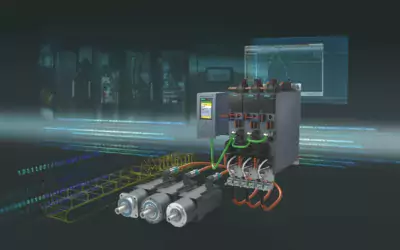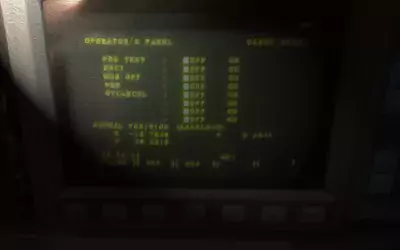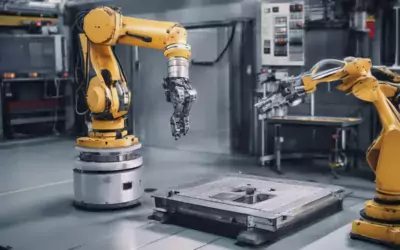The 4th Industrial Revolution has the potential to radically change how we live, work, and play. As technology advances and new technologies are adopted, it’s important to ask ourselves if CNC machining will be able to keep up with these changes or if it will fall behind as a result.
If you’re unfamiliar with the concept of “Industry 4.0,” here’s a quick primer: Industry 4.0 refers to the fourth stage in the evolution of manufacturing since its inception during the industrial revolution. Although there is no well-defined boundary between stages (there are many overlapping definitions), each represents major advancements in technology over previous periods:
The 4th Industrial Revolution
The 4th Industrial Revolution is a new era of technology, where the merger of technologies such as artificial intelligence, robotics and the IoT will change how we live and work. It’s estimated that by 2040, 78% of all jobs in the world will be impacted by technology.
The impact on manufacturing is still unclear but it’s likely that some industries will be impacted more than others.
How will CNC machining survive the 4th Industrial Revolution?
To answer this question, we need to understand what the 4th Industrial Revolution is, and how it will affect CNC machining. The 4th Industrial Revolution refers to a period of time where machine learning and artificial intelligence (AI) are taking center stage in business processes and the workplace. For example, you may have heard about autonomous vehicles like Uber’s self-driving cars or Google’s driverless car that can be summoned with a smartphone app. In fact, these cars already exist today—and they’re not even that expensive!
In order to make autonomous vehicles possible, engineers had to develop new technologies such as Lidar (light detection and ranging), which uses lasers instead of cameras; radar systems; GPS systems; artificial intelligence software; and more. These technologies help self-driving cars recognize objects on the road ahead at night or during bad weather conditions when visibility isn’t great for human drivers—but this all takes place inside a computer system instead of inside our brain! If someone asked us how we know where everything is around us without having seen them first ourselves (since we didn’t), then all we’d say was “I don’t know.” But if someone asked one day why our smartphone knows where everything is around us without having seen them first itself (since it doesn’t either), then maybe someday soon there’ll be an answer: “It learned from experience.”
The impact of automation
It’s clear that the coming of automation has a far-reaching impact. A quick look at just how this new era will affect your business reveals several key things you should be aware of:
-
Impact on CNC machining
-
Impact on manufacturing
-
Future of CNC machining
The rise of automation will have an effect on all industries, but the manufacturing industry is particularly vulnerable because it relies heavily on human labor. For example, consider how many people are currently employed by Walmart and Amazon warehouses across America: 80% of those jobs require no special skills or education beyond basic literacy and numeracy levels. By contrast, most skilled trades like welding or carpentry require years of training before they become proficient enough to use expensive machinery safely and effectively; this makes them less desirable than other career options such as office administration or customer service roles where almost anyone can achieve proficiency within weeks if not days after attending classes (although these aren’t always offered).
The evolution of CNC machining
You may be wondering if CNC machining will survive the Fourth Industrial Revolution. The answer is , well… yes and no.
CNC machining has evolved to become more efficient and cost-effective, and it’s now accessible to many businesses that couldn’t afford it before. It can be used in a variety of industries, like aerospace, automotive, medical equipment manufacturing and more.
The advance of CNC technology
CNC machining is a constantly evolving technology. With the advance of CNC technology, many new machining methods have been developed. These new technologies can be used to produce parts more quickly and efficiently, as well as of higher quality.
CNC machining has always adapted to incorporate advancements in technology, and it is now at the beginning of a new phase of expansion with Industry 4.0.
Although there are many challenges ahead for CNC machining, the industry will continue to thrive as long as it can adapt to the changing technological landscape.
Conclusion
The 4th Industrial Revolution is here and it’s time for CNC machining to adapt. We’ve already seen how Industry 4.0 has affected the manufacturing industry, and now it’s time for CNC machining to take advantage of these advancements in technology as well. Not only does this mean incorporating new technologies like robotics or AI into your business, but also adapting your current workflow processes to meet the needs of tomorrow’s workforce.


